Nigeria’s external debt is the largest amongst all sub-Saharan African nations, despite the fact that it received debt waivers from the Paris Club, London Club or from Independent Creditors.
The arrears of this debt have accumulated inexorably, putting Nigeria in the bad books of international financial communities.
Also, Nigeria’s huge debt profile has negatively affected its economy, hence, a big reason to worry.
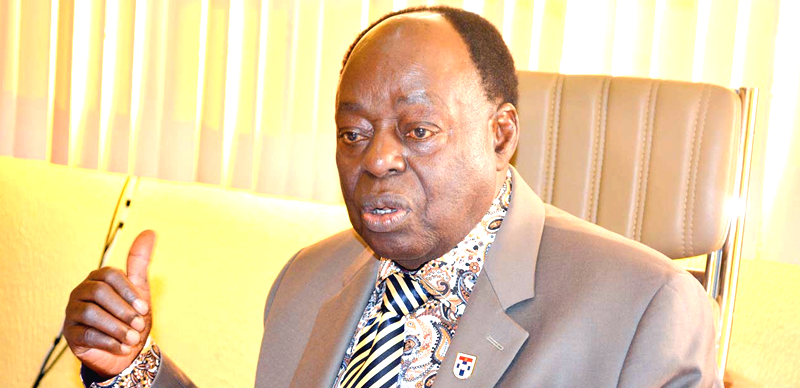
Nigeria’s Vivid Debt History
The Pre-independence Debts
Nigeria’s public debt dates back to its colonial rule.
The first recorded public borrowing was in 1923-24 when a loan of £5.7 million was taken by the Nigerian Protectorate at an annual interest rate of 2.5 percent and with a structured repayment time of 20 years. In 1927, another £1 million loan was taken from the Bank of England to finance the construction of the Lago-Port Harcourt Railway.
This loan was guaranteed by the British Government and was repaid in 1938. In 1936, the Nigerian Protectorate took another loan of £4.89 million.
From 1946 to 1948, it took additional loan of £5.74 million. In 1958, the Nigerian Protectorate took a loan of £28 million from the International Bank for Reconstruction and Development, IBRD, which is also known as the World Bank to finance the expansion of the Kainji Dam and the Ugheli Power Station. This was repaid in 1978.
By the end of the Colonial rule, Nigeria had a national debt of $31 million at an interest rate of 3.5 percent per annum and a repayment period spanning two decades.
Post Independence Debts
Following its independence in 1960, Nigeria continued incurring both domestic and external debt to finance its development needs.
It borrowed from the World Bank, the International Development Association, the International Monetary Fund, the African Development Bank, the European Economic Community and bilateral creditors such as the United States, Britain, France, Germany, Japan and China.
The main sources of domestic loans are the Central Bank of Nigeria, the Nigerian Industrial Development Bank, the Nigerian Agricultural and Cooperative Bank, and the Nigerian Bank of Commerce and Industry.
READ ALSO: Nigeria’s Inflation Rate Rises to 32.7% in Three Months
- Debts under the First Republic
It is noteworthy that Nigeria took no external loan from 1963 to 1966 when Dr. Nnamdi Azikiwe was president.
Debts under the Military Rule from 1966 till 1979
Post independent. It was under the military that Nigeria started taking foreign loans.
- Under the rule of General Yakubu Gowon from 1966 to 1975, Nigeria’s debt profile rose by $1.687 billion.
- From 1975 to 1976 under the rule of General Murtala Mohammed, Nigeria’s debt dropped from $1.69 billion to $1.33 billion.
- Under the rule of General Olusegun Obasanjo from 1976 to 1979, Nigeria’s debt increased by $4.90 billion.
- Debts under the Second Republic: Nigeria’s debt increased by $11.33 billion from 1979 to 1983 under the democratic leadership of Alhaji Shehu Shagari
- Debts under the Military Rule from 1983 to 1993
- Under the rule of General Muhammadu Buhari from 1983-1953, Nigeria’s debt increased by $1.078 billion.
- Under the rule of General Ibrahim Babangida from 1985 to 1993, Nigeria’s debt increased by $12.04 billion.
- There was no recorded debt under the Third Republic
- Debts under the military rule from 1993 to 1999
- Under the rule of General Sani Abacha from 1993 to 1998 Nigeria’s external debt dropped from $30.7 billion to $30.31 billion.
- Under the rule of General Abdulsalami Abubakar from 1998 to 1999, Nigeria’s debt dropped from $30.32 billion to $29.1 billion
- Debts under the Fourth Republic
- Chief Olusegun Obasanjo met a foreign debt of $28.04 billion and domestic debt of N798 billion in 1999. Chief Obasanjo was worried about the foreign debts, hence he embarked on a world tour meeting with the Paris Club and other creditors of Nigeria and he pleaded for the forgiveness or reduction of Nigeria’s debts. This led to a huge reduction of Nigeria’s external debt from $28.04 billion to $2.11 billion. Consequent upon his efforts and prudent management, he left the presidential office in 2007 with an external debt of $2.11 billion and domestic debt of N2.17 trillion. This was a total of 31.8% decrease in the Federal Government’s debt from N3.55 trillion to N2.42 trillion.
- President Umaru Musa Yar’Adua ruled from 2007 to 2011. Within this time, domestic debt increased from N2.17 trillion to N5.62 trillion. Foreign debt increased from $2.11 billion to $3.5 billion. That is an increased debt from N2.4 trillion to N5.62 trillion in four years. Dr. Goodluck Ebele Jonathan completed President Yar’Adua’s tenure. In that one year, the Federal Government debt increased from N4.94 trillion to N6.17 trillion.
- Dr. Goodluck Jonathan commenced his tenure in office in 2011 with a foreign debt of $3.5 billion and left with a debt of $7.3 billion. Domestic debt increased to N8.4 trillion by 2015. This translates to an increase in national debt from N6.17 trillion to N9.8 trillion.
- President Muhammadu Buhari increased the domestic debt from to N8.4 trillion to N19.24 trillion and external debt from $7.3 billion to $33.62 billion.
- On assumption of office, Asiwaju Bola Tinubu inherited a domestic debt of N19.24 trillion and external debt of $33.62 billion. By the end of the first quarter of 2024, Nigeria has domestic debt of N65.65 trillion and external debt of $42.12 billion, totalling N121.67 trillion. In addition to this, the states owe a total of N4.07 trillion.
IN 2020, DEBT SERVICE COSTS ACCOUNTED FOR A STAGGERING 83 PERCENT OF REVENUE. BY JANUARY 1, 2024, THE FEDERAL GOVERNMENT’S REVENUE WAS N449.7 BILLION WHILE IT SPENT N755.9 BILLION ON DEBT REPAYMENT. NIGERIA’S DEBT IS NOW 168% OF ITS REVENUE.
THE SAD REALITY IS THAT NIGERIA IS NOW REPAYING DEBTS WITH DEBTS, SINCE ITS REVENUE CAN NO LONGER PAY ITS DEBT.
It is therefore worrisome that Nigeria is reported to be taking more debts. In September 2024, the world bank approved a $1.57 billion loan for Nigeria to support its health and education sectors and help provide sustainable power. In June 2024, the World Bank approved $2.25 to be disbursed to Nigeria for Economic Stabilization. In the same year, Nigeria took $8.8 billion debt to be repaid with unexplored oil. This is a total of $12.62 billion in addition to already existing debt.
The questions are:
- What have we done with all these loans and what are we proposing to do with these additional loans?
- Where will the Federal Government draw the line on financing the Nigerian economy with debt?
- When are we repaying the loans?
- Where are we going to get the money to repay the loans?
The several trillions of Naira taken as loan has not reflected positively on the economy. Where are the projects on which we spent all these monies? Regrettably at 64 years post-independence, Nigeria still suffers from infrastructural decay, declining foreign investments, declining educational standards from infrastructural deficits, increase in the rate of poverty, unrivaled rates of inflation and an astronomical fall of the value of the Naira in international market.
NEWSPAPER REPORTS ABOUT EMBEZZLEMENT OF PUBLIC FUNDS, EXTRAVAGANT SPENDING, POOR INFRASTRUCTURES, NON-PAYMENT OF SALARIES AND PENSIONS, INFLATION, HUNGER AND POVERTY HAVE RESULTED IN LARGE “JAPA” SYNDROME.
A passionate plea to rescue Nigeria
The Nigerian debt burden has retarded internal development and hindered economic growth in Nigeria. Most government funds are diverted towards debt servicing rather than essential public services. Governments have also taken to financing their debts through other debts. All these have exacerbated the poverty rate in Nigeria leading to the conclusion that Nigeria urgently needs an economic rescue.
Recommendations
In view of the dire state of the economy of Nigeria, the Federal Government should:
- Adopt Chief Obasanjo’s laid down example by approaching the lenders for total forgiveness of the debts or reduction, and in any event the waiver of the payment of the interests on the debts.
- Set up committees to investigate and ascertain the actual amounts borrowed, the purposes for which they were borrowed, the accounts into which the monies were paid into and the projects for which the debts were utilised.
- Enquire into whether it is true or not that Nigeria’s unexplored crude oil was sold in advance. If so, what the money was spent on.
- Urgently revive national oil refineries to reduce the importation of refined oil in Nigeria. This will leave more monies in government coffers which can then be utilised in the repayment of our debts.
- Reduce the cost of governance by adopting the practice in the First Republic where law makers regarded their positions as opportunities to serve and only took sitting allowances.
- Place premium on infrastructural development and reduce recurrent expenditures on politics or governance.
7. Use all recovered proceeds of corruption to service national and international debts.
8. Encourage, promote and finance the development of the agricultural sector and discourage the mindset of Nigerians that politics is the only lucrative business in Nigeria.
All imaginable economic woes have visited Nigeria. However, there is still hope for our beloved nation. A hope that needs political will to thrive.
*Please send your comment/ contribution to president@abuad.edu.ng
(Vanguard)
Follow the Parallel Facts channel on WhatsApp: https://whatsapp.com/channel/0029VaCQSAoHgZWiDjR3Kn2E



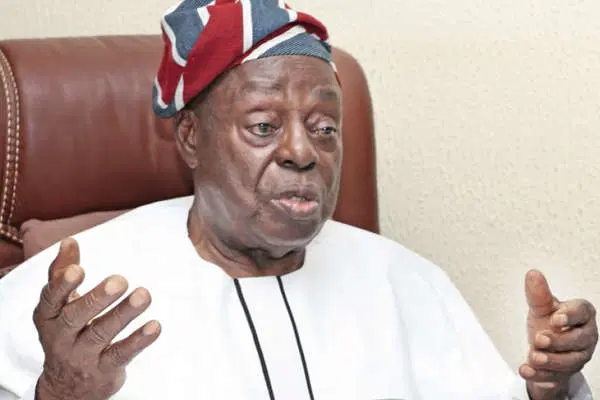
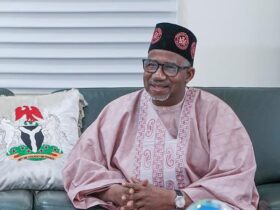
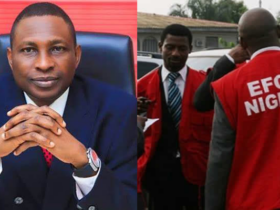
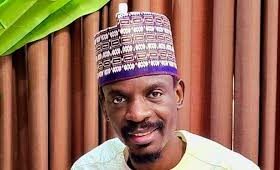
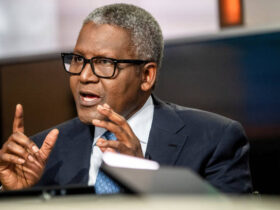
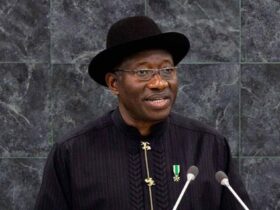
Leave a Reply